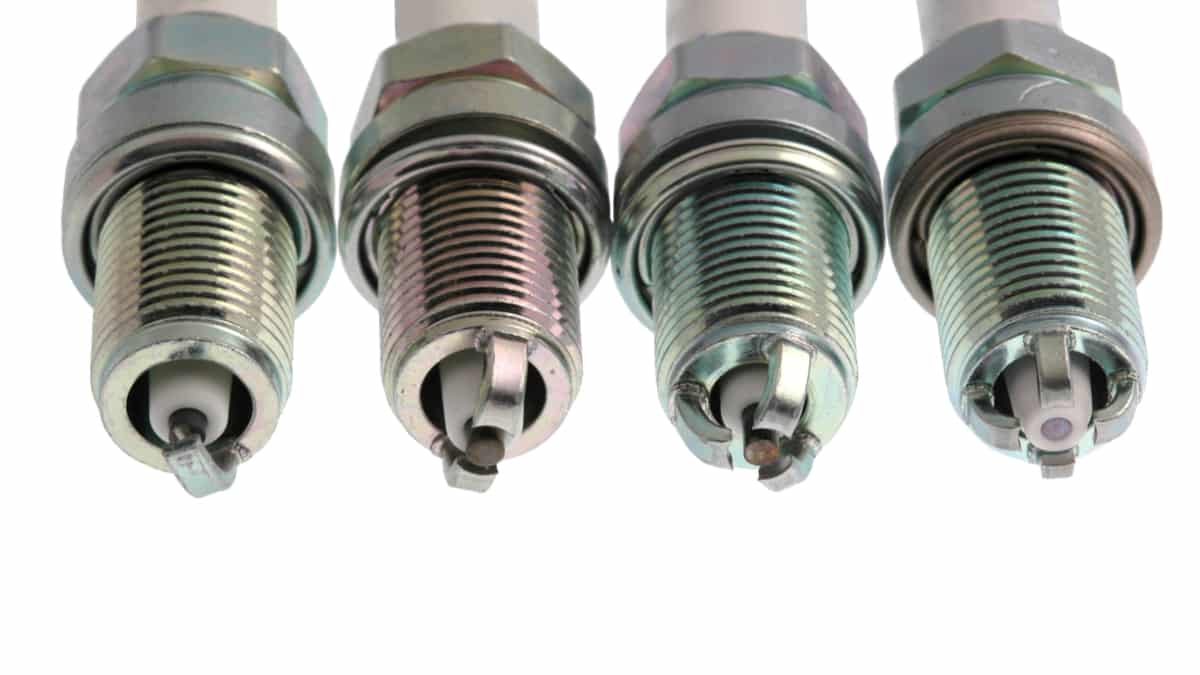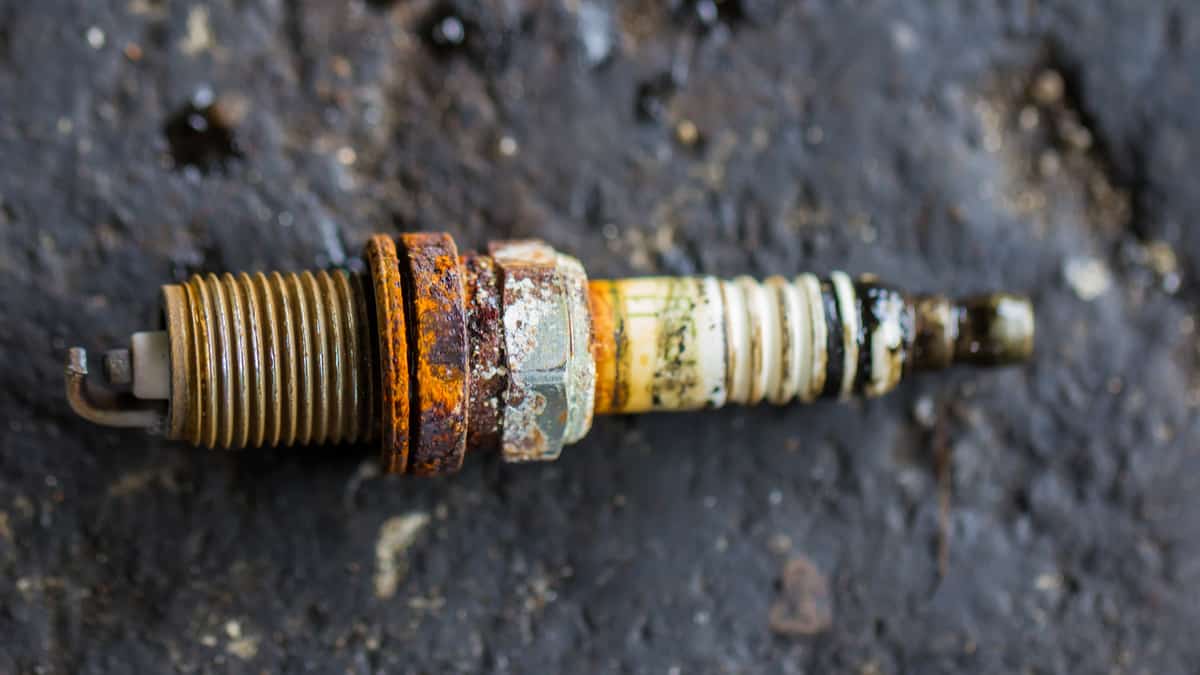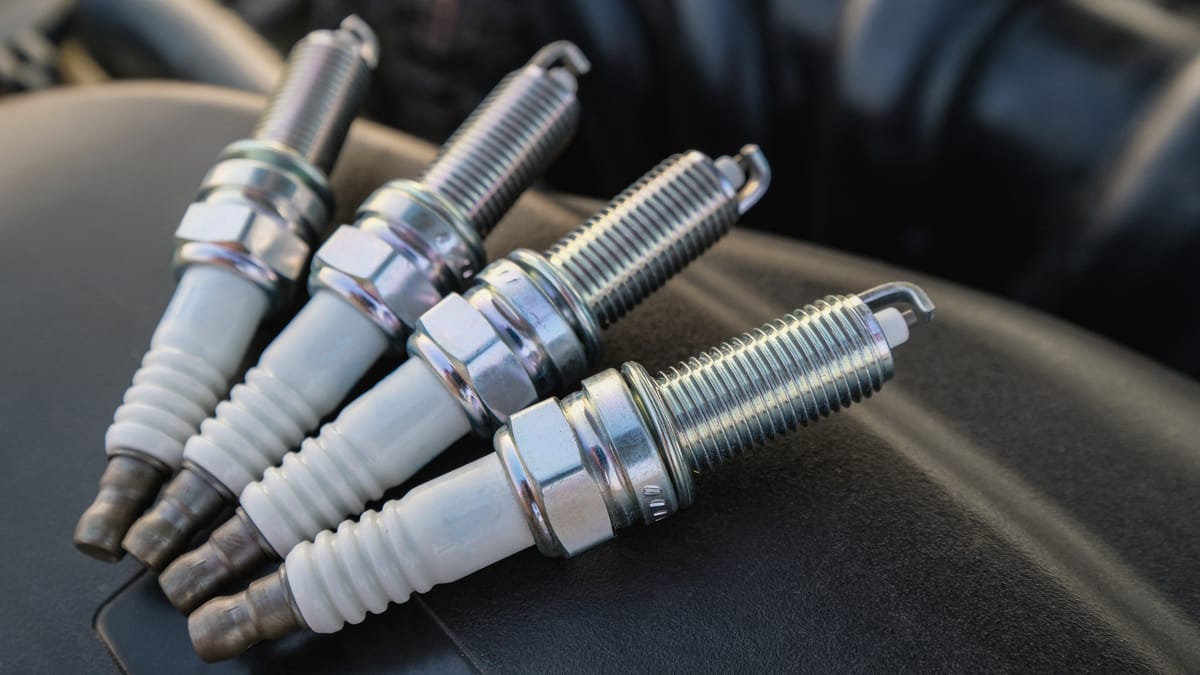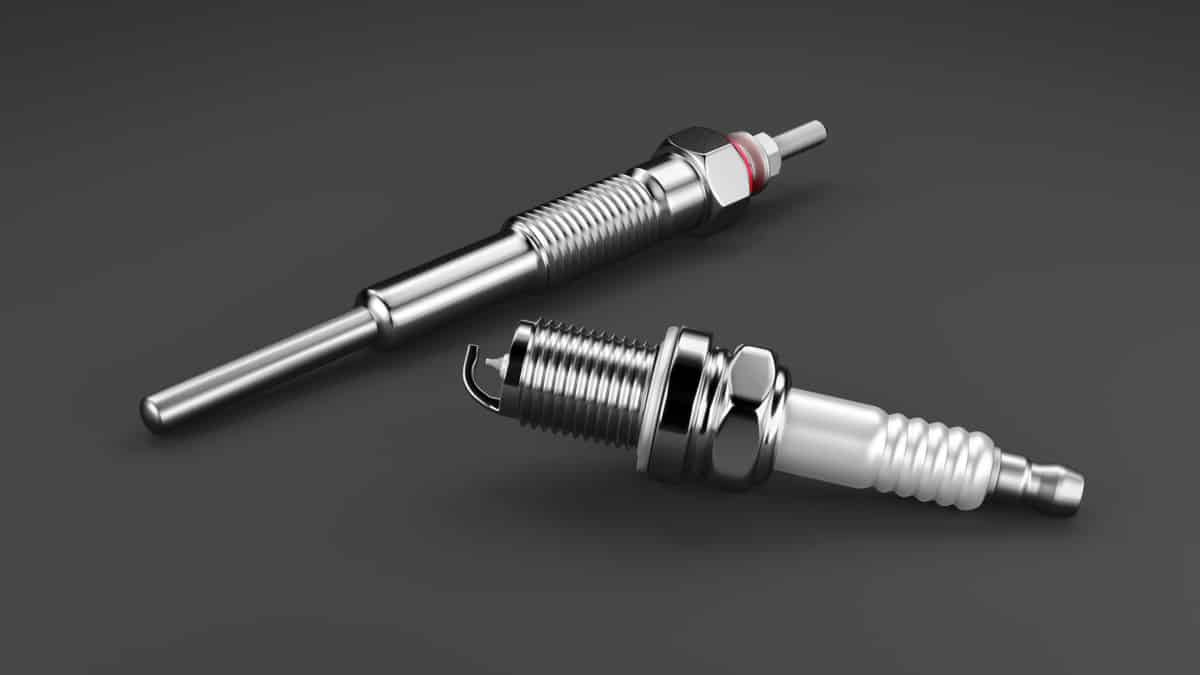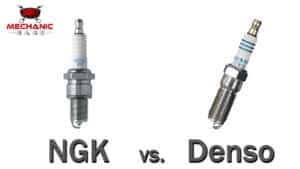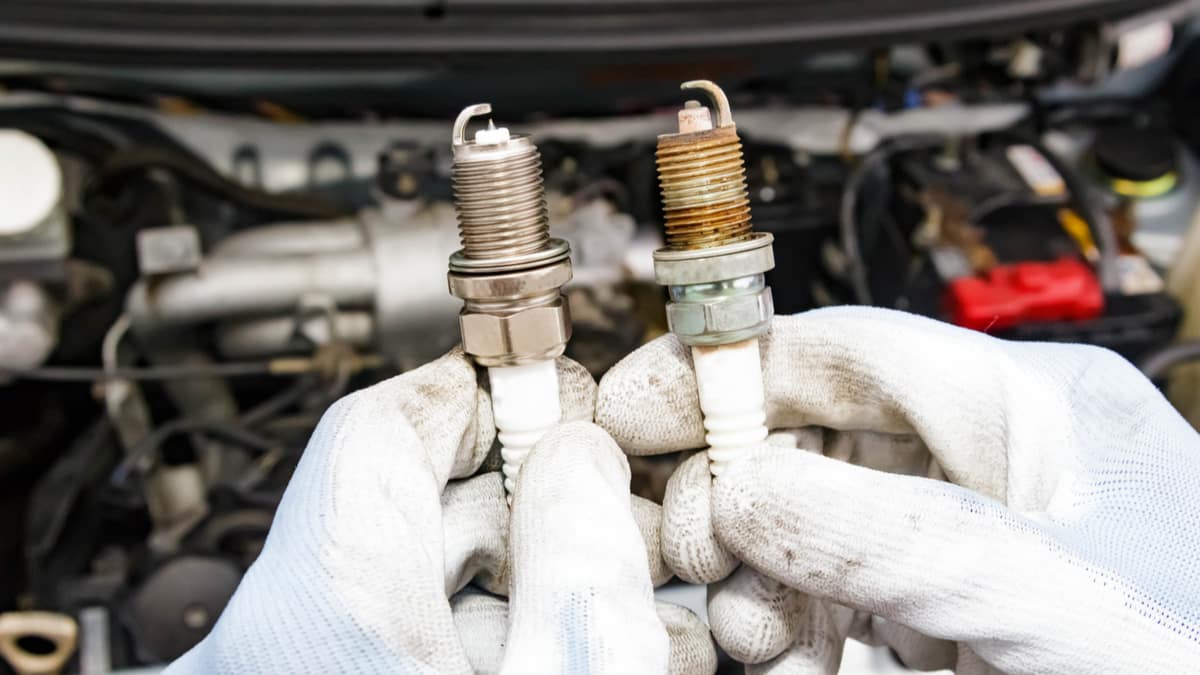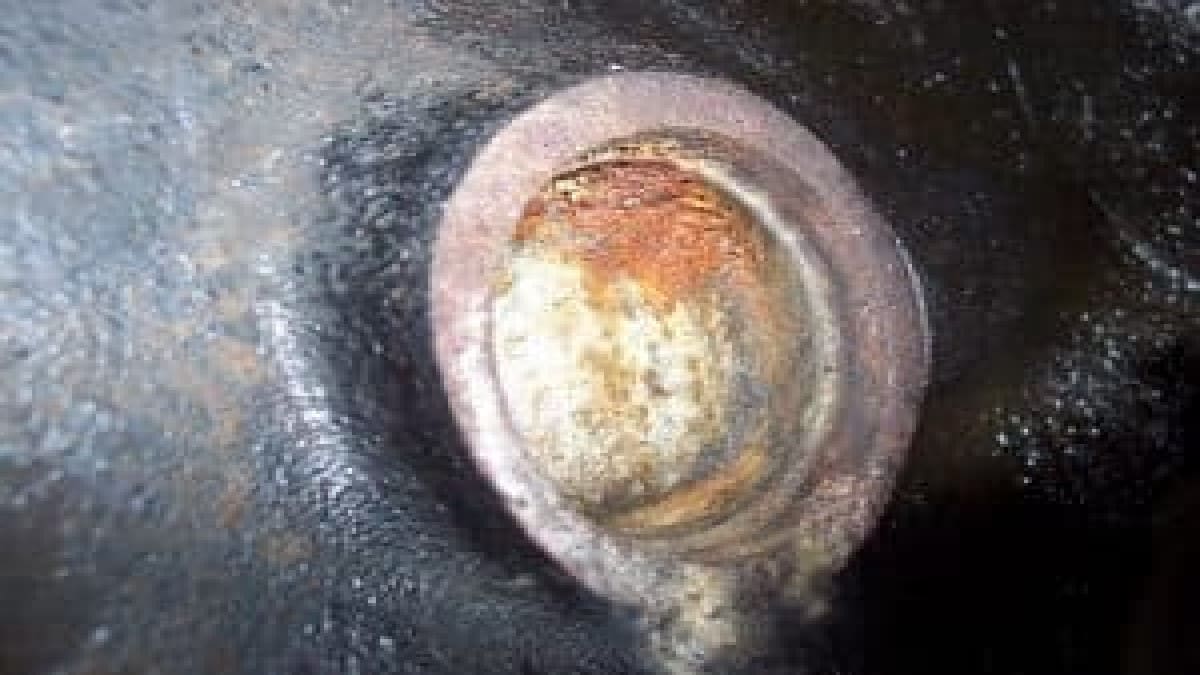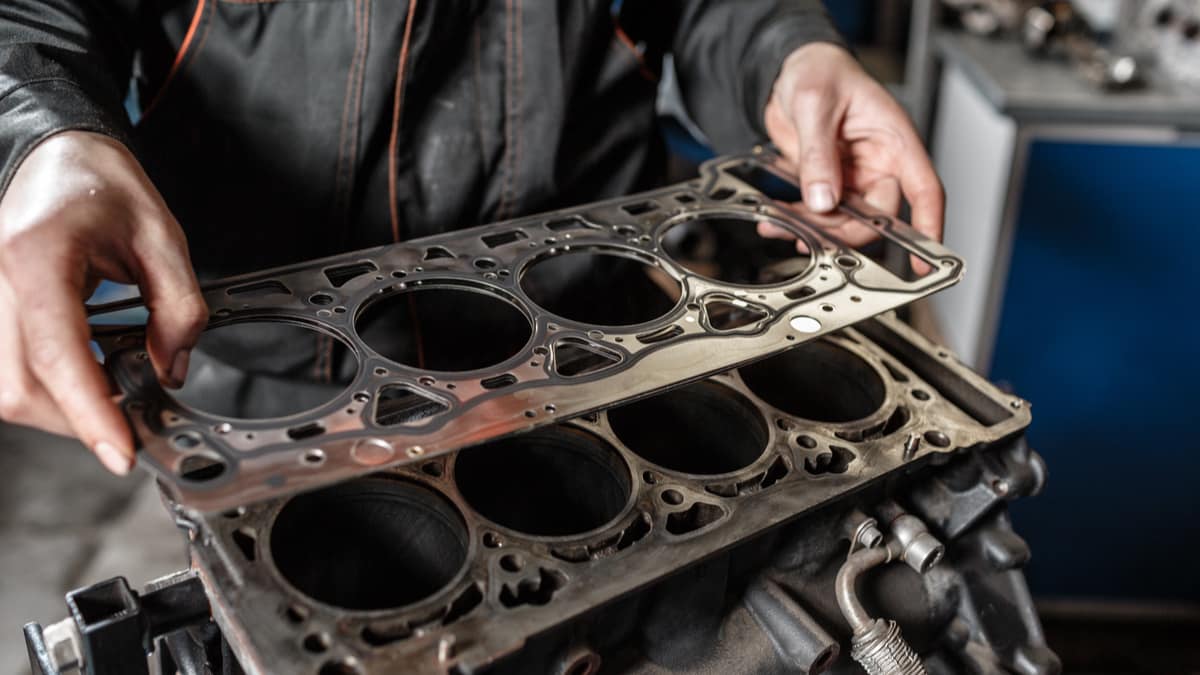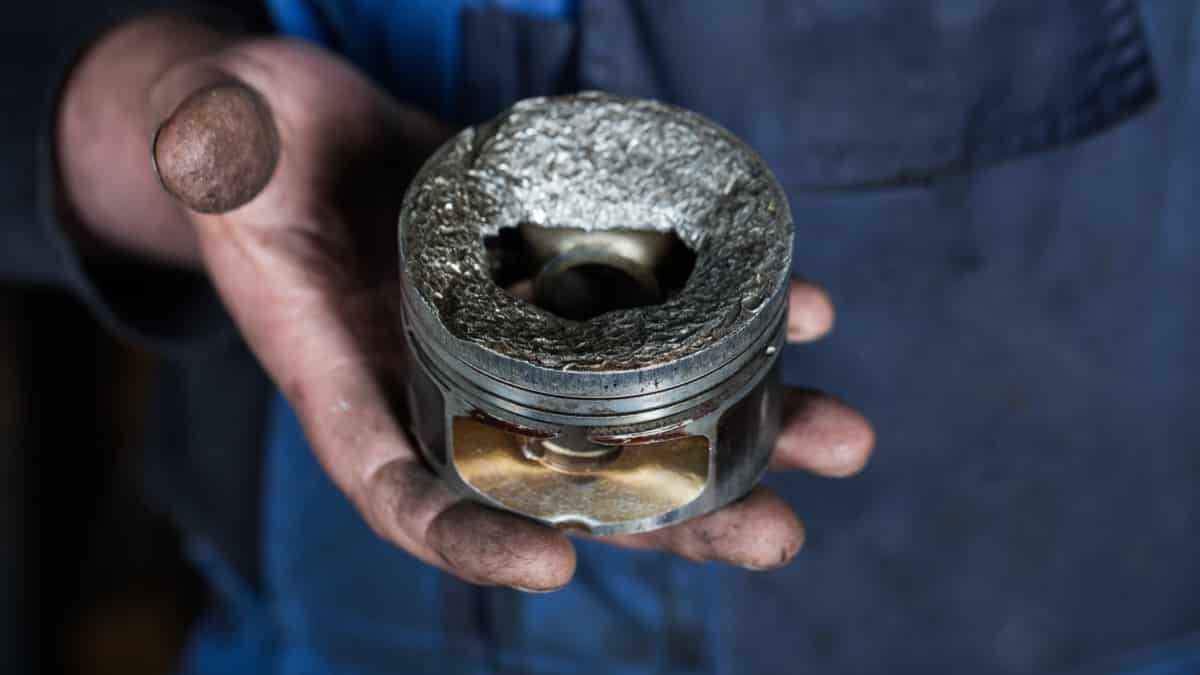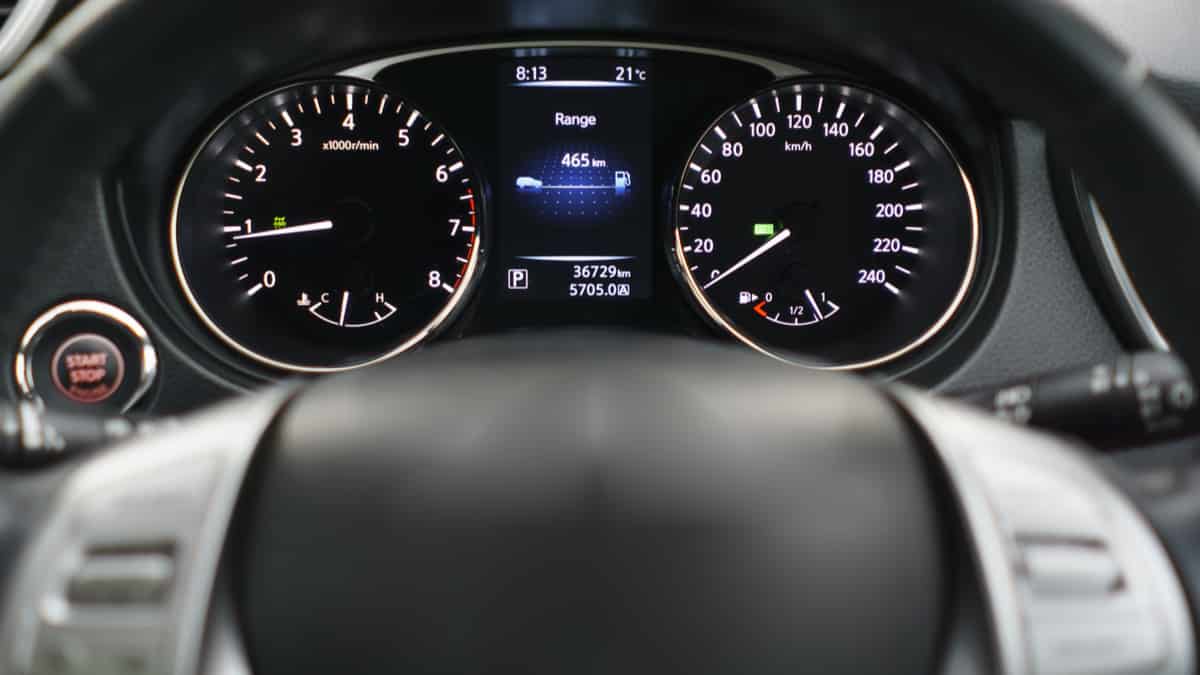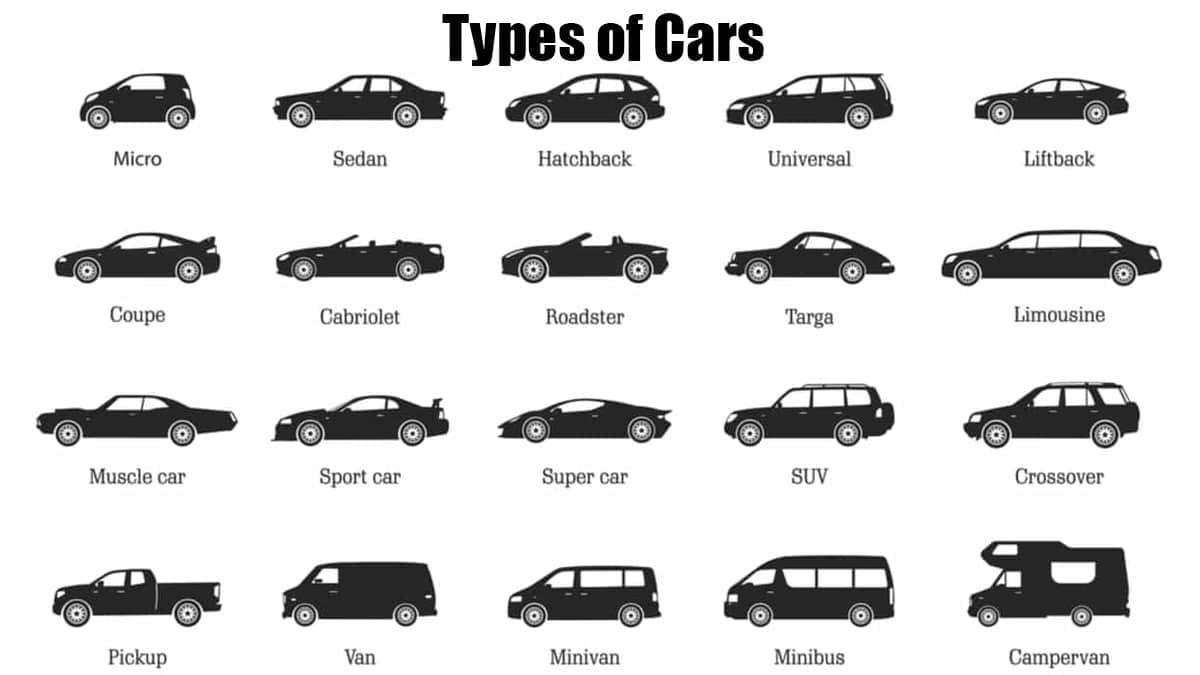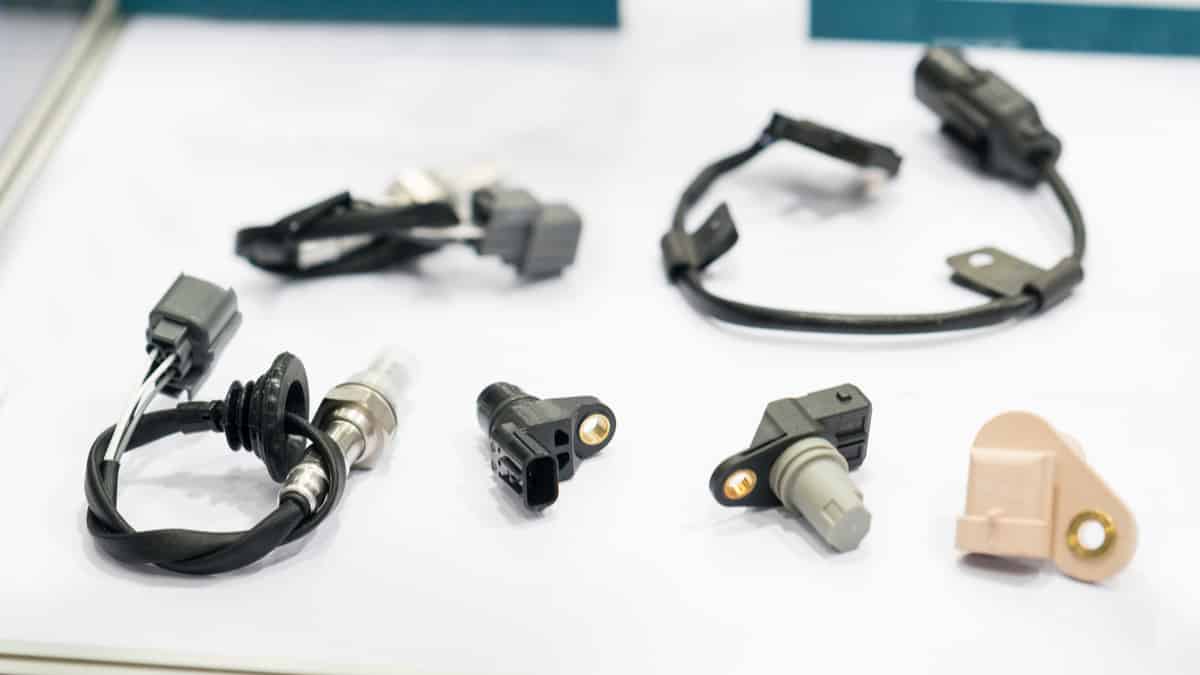Regular car maintenance involves changing the spark plugs occasionally. This essential tune-up keeps the engine running at its best. To complete the job right, you need to know the different types of spark plugs available for your vehicle.
In this guide, we look at the differences between all of the spark plug types. You’ll understand the pros and cons of each, allowing you to make a decision when it’s time for your next tune-up. We also answer a few of your top spark plug questions.
Types of Spark Plugs
Spark plugs are classified by the material they are made from. The main spark plug types include copper/nickel, iridium, platinum, and double platinum. The differences have to do with longevity, overall performance, and the cost spent for each.
Let’s look at the pros and cons of the top plug types to determine what might suit your car the best.
1. Copper Spark Plugs
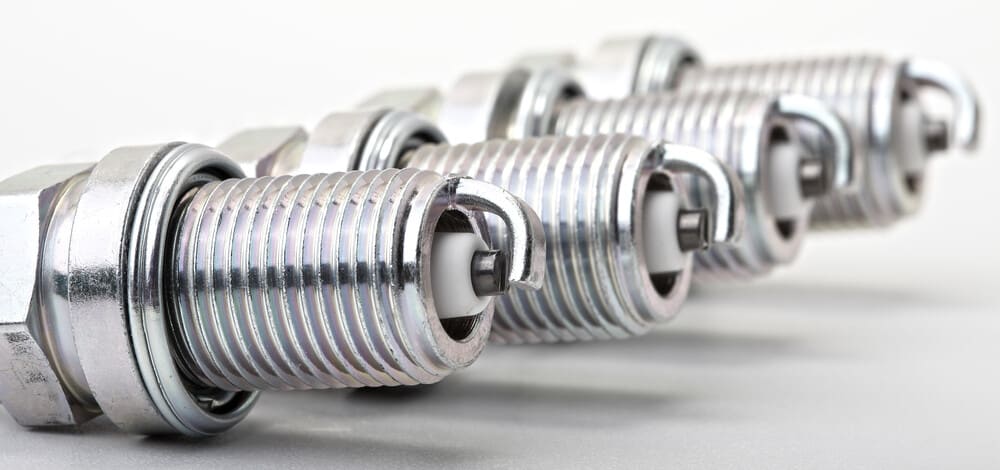
The center electrode has a copper core with a nickel alloy coating. Of all spark plug types, this one has the largest diameter, requiring the most amount of voltage to create a spark.
Because nickel alloy is a soft material, it’s not going to be durable. For this reason, you have to replace these spark plugs sooner than any other. Still, many manufacturers recommend using this type of plug, so it’s best to follow the advice given in your owner’s manual.
Pros
- Cheap
- Best for older models before 1980
- Works well in turbocharged motors
- Ideal for high-compression situations
Cons
- Short lifespan – more frequent changes
- Needs more voltage
2. Iridium Spark Plugs
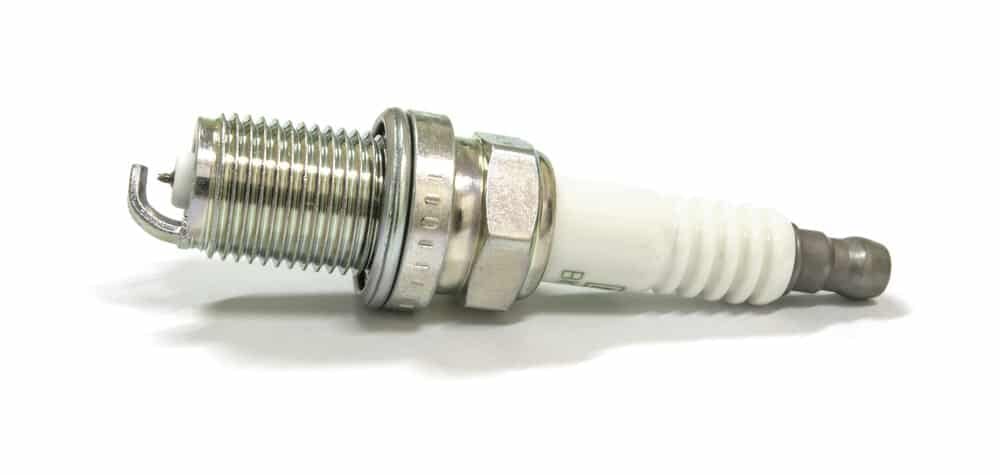
Iridium material is more durable and harder than platinum, which we will review in a minute. The center electrode is small, so less voltage is needed to make the spark. However, these benefits create one of the highest price tags on spark plugs.
Newer cars often come with iridium spark plugs. If that is what the manufacturer recommends, you definitely don’t want to downgrade to copper or a platinum plug. If you did, you would notice a significant decrease in performance.
There’s also the option to choose double iridium plugs. These deliver more firepower for vehicles that operate in extremes, whether the temperatures are high or speeds are at a maximum. These plugs can last up to four times as long as the copper plug, but you are going to pay that much extra for them.
Pros
- Ensures complete combustion
- Less voltage required
- Longer lifespan
Cons
- Costly
3. Platinum Spark Plugs
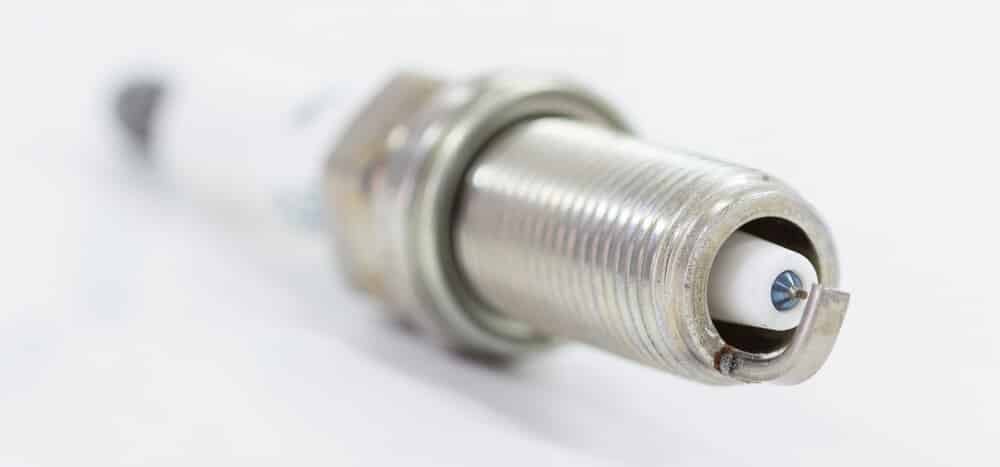
The single platinum plug has a similar design to the copper plug, other than the center electrode is made from a platinum disc welded to the tip. Because platinum is a stronger metal, the plug is going to last longer than the copper alternative.
Additionally, these plugs create more heat. Because of this, the carbon buildup is minimal. Often, manufacturers recommend these plugs with newer models, especially if it has a coil-on-plug ignition.
Pros
- Last longer than copper plugs
- Minimal carbon buildup
Cons
- Cost more than copper plugs
4. Double Platinum Spark Plugs
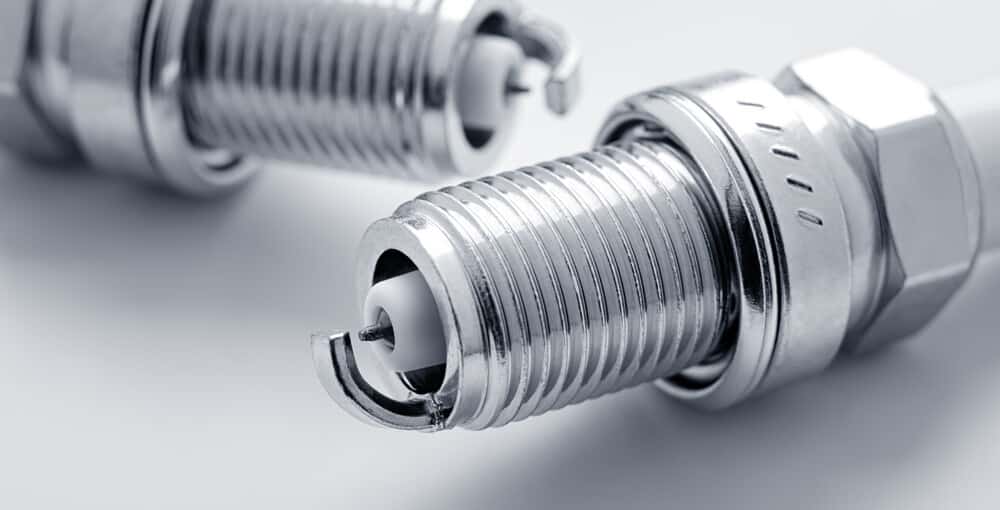
So what makes double platinum different than single platinum spark plugs? Double platinum plugs contain a platinum coating on the ground and center electrodes. With this efficient design, you have a great option for wasted spark ignition systems that are known to exert additional wear on the electrodes.
With the wasted spark system, each of the ignition coils fires two plugs at the same time. There’s one plug in the compression stroke cylinder with another in the exhaust stroke cylinder. The one spark is wasted because the air-fuel ratio has already burnt during the previous stroke. Why was this type of ignition system created? It was meant to be an improvement from the previous distributor-run systems.
Pros
- Great for use with wasted spark ignitions
- Durable
- Reliable performance
Cons
- Expensive
Comparing Spark Plug Types
Now that you have a basic understanding of the spark plug types let’s show them head-to-head with the differences.
1. Performance
Believe it or not, the copper plug offers the best performance because of how well the material conducts electricity. It also runs a little cooler than some of the other options. As far as the other types are concerned, iridium has better performance than platinum.
Don’t confuse the hot or cold plug with the performance factor. This rating shows you the insulator tip but doesn’t touch on the electrode metal being used. Therefore, a cold plug has a shorter insulator tip that dissipates the heat from the combustion chamber faster. If you have a hot plug, the insulator tip is longer, so the firing end holds more heat.
2. Lifespan
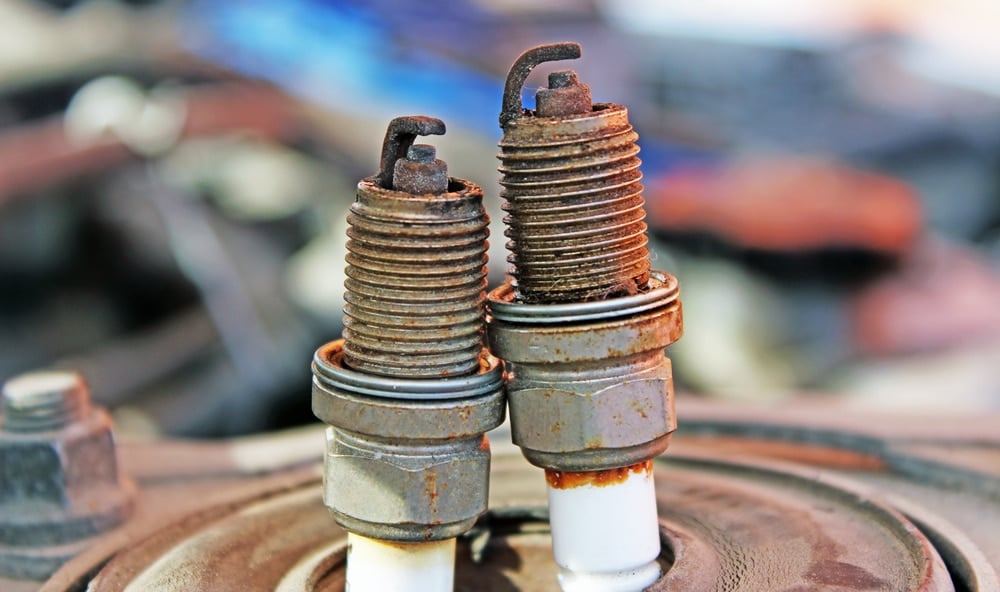
Among the three metal types, iridium is the hardest, so it’s going to last the longest. While each brand has its own design and expected lifespan, here are some general guidelines you will find.
- Copper: 30,000 miles or two years
- Platinum: 60,000 miles or four years
- Iridium: 100,000 miles or seven years
If you want to go as long as possible without a spark plug replacement, you should opt for iridium. On the other hand, if you are just looking to get by in an older car, copper might provide everything you need.
Learn more: How Long Do Spark Plugs Last?
3. Cost
The cheapest of the spark plug types is copper. It provides good performance but does use more voltage than the other types. Iridium is usually the most expensive, but it also provides the longest lifespan.
The good middle ground is the platinum plug. It costs more than copper but not as much as iridium. Still, when you break down the cost of any spark plug per mile, you find that most of them aren’t that different.
4. System Designed For
Each of the spark plug types was specifically designed for a particular vehicle configuration. As an example, here are some general guidelines.
- Copper: Older cars before the 1980s with distributor ignition systems/late-model turbo engines
- Platinum: Newer cars with electronic ignitions
- Double Platinum: Designed for wasted spark systems
- Iridium: Newer cars with coil-on-plug (COP) ignition system
Can some of these work interchangeably? Absolutely, but you want to follow the recommendations in your owner’s manual.
Which Spark Plug Type Is Better?
Start by reading the recommendations from the manufacturer. Unless you have a reason to do something different, we normally stick to those guidelines when working on a car professionally.
There are also some things you don’t want to do. Most importantly, we don’t recommend using copper plugs if you have a coil-on-plug system, as they may wear out prematurely.
If the OEM plug is platinum, you don’t want to move back to the copper plugs. You could upgrade to iridium or double platinum if you don’t mind spending more.
Additionally, single platinum and copper plugs aren’t going to work well with the wasted spark system. These were never designed to deal properly with this inefficient design. You could upgrade to the iridium-platinum combo plug that contains a platinum ground electrode and an iridium central electrode.
The iridium plug is best used with coil-on-plug systems. If your manufacturer recommends using iridium, you shouldn’t downgrade anything cheaper.
With most systems, it’s a waste of money to upgrade beyond what’s recommended. You are going to find the best performance based on what’s suggested by the manufacturer.
RELATED: 7 Best Spark Plugs
Is iridium spark plugs better than platinum?
The iridium plug is going to last longer than platinum plugs because of the harder material used. However, these plugs also cost more money and may not be worth the expense if your vehicle manufacturer recommends using platinum plugs.
Do iridium plugs make more power?
The iridium plug design is meant to create more power while using less voltage. It’s specifically designed to be used with coil-on-plug ignition systems and can often last more than 100,000 miles. However, there’s a higher price tag on iridium plugs than any other kind.
Does it matter what spark plugs I buy?
Yes, you should always follow the recommendations of the manufacturer. The automaker knows what the engine needs from a spark plug and will guide you in using that type. There are some that can be used interchangeably, but it’s normally best to stick with the recommendation.
What’s better iridium or standard spark plugs?
Iridium plugs run cooler than copper spark plugs and last longer. They also cost more, so there are upsides and downsides to both. In general, the best plug for your vehicle is the one that’s recommended by the manufacturer. Each type of plug works best with a particular type of ignition system.
Do expensive spark plugs make a difference?
The biggest difference that expensive plugs make is that they last longer than the cheaper ones and they require less voltage. However, some motors are designed to work with the cheaper plugs. For that reason, it’s best to follow the recommendation from the auto manufacturer.
When it comes time for your regular tune-up, you may start thinking about the spark plug type that should be used in your car. It’s important to consider your options to decide what may work best. In most cases, the recommended guidelines from the auto manufacturer are what’s best, but there are always some exceptions.
You can read through this guide when it comes time to change the plugs just to make sure you are doing everything right. The last thing you want to do is change the spark plug type and find out that the car isn’t going to perform the same way.
Categories: Engine, Maintenance
